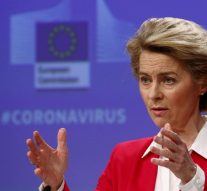
EU powerful interventions to relaunch Member States economies
Employment and Social Affairs 7 June 2020Covid-19 produced a major economic crisis in Europe. The European Union is now called once again to prove the effectiveness of the common project that ensured over 70 years of peace in the continent. Major crisis requires unprecedented responses, and Eu after Covid-19 should demonstrate to be able to produce concrete answers to growing citizen’s needs. In the baseline scenario of the projections, as the European Central Bank highlighted, annual real GDP is expected to fall by 8.7% in 2020 and to rebound by 5.2% in 2021 and by 3.3% in 2022. It seems that European countries could rely on really strong and effective measure, with a powerful help provided by many programmes.
To ensure the recovery is sustainable, inclusive and fair for all Member States, the European Commission is proposing to create a new recovery instrument, Next Generation EU, that should be embedded within a powerful and modern long-term EU budget. “The recovery plan turns the immense challenge we face into an opportunity, not only by supporting the recovery but also by investing in our future: the European Green Deal and digitalization will boost jobs and growth, the resilience of our societies and the health of our environment”, European Commission President, Ursula von der Leyen said while presenting the proposal. “This is Europe’s moment. Our willingness to act must live up to the challenges we are all facing. With Next Generation EU we are providing an ambitious answer”, he added. The Commission proposal now provides for a mix of grants and loans. Of the €750 billion total, €250 billion is to be repaid.
On the other hand the European Central Bank’s Governing Council decided on 4th of June to increase the envelope for the pandemic emergency purchase programme (PEPP) by €600 billion to a total of €1,350 billion. ECB also decided to extend the horizon for net purchases under the PEPP to at least the end of June 2021. Third, the Governing Council decided to reinvest the maturing principal payments from securities purchased under the PEPP until at least the end of 2022.
“Incoming information confirms that the euro area economy is experiencing an unprecedented contraction”, ECB President Christine Lagarde recognized, adding: “Severe job and income losses and exceptionally elevated uncertainty about the economic outlook have led to a significant fall in consumer spending and investment”.
“The response to the Coronavirus crisis by the Member States and the European Union has been strong but has increased the risk of difference and fragmentation between countries”, Commissioner for Economics, Paolo Gentiloni, highlighted in his speech at the virtual event of the Peterson Institute for International Economics (Piie). The Commissioner stressed that “there have been 3 important decisions”: the European Central Bank, with the pandemic emergency purchase program (Pepp), “which was strengthened” up to 1,35 trillion euros and is now set to run through at least the end of June 2021; the suspension of the Stability and Growth Pact; the suspension of traditional state aid rules. “Therefore, very strong initiatives by the Member States”, but which “have increased the risk of differences between Member States, of problems in a level playing field within our single market and of fragmentation especially between Member States of the euro area”, he added.
The main problem in this period emerged as Four States signaled their opposition to a too generous Recovery fund: Austria, Sweden, Denmark and the Netherlands, known as the ‘Frugal Four.’ Their position is basically that aid money should not be issued as grants, but as repayable loans. And the fund should not lead to any debt mutualisation and be closed after two years, the states added.
Von der Leyen has recognized the stance of the “frugal four”, that also highlight that the EU “is not just two member States” (namely France and Germany). “As far as I know the four have asked for a modern EU budget. Well, under this programme, 60 percent of investment will go on new, modern policies over the next seven years”, she stressed. “Of course, there will now be debates on our proposal. I have been in touch with the frugal four. I have put a lot of time and effort into this but I will be happy to explain this to them again.”
Von der Leyen added that “it is clear what their reserves are but others, not just the four, have reservations too. That is normal and this is the beauty of the EU. Let me be clear though: this is a one off [recovery fund] and an exception. But we must remember we are still in a crisis. We are not out of it and we all share by contributing to EU programmes”. The European Commission President said the EU had to “raise our game to a completely new level” and raise “unprecedented amount of funding”. This is needed to help keep the outbreak under control, she noted and “help Member States recover from the crisis.” In the coming weeks we will see if this common stance defended by the Von der Leyen Commission will definitively prevail, allowing EU project to be relaunched together with members states economies.



